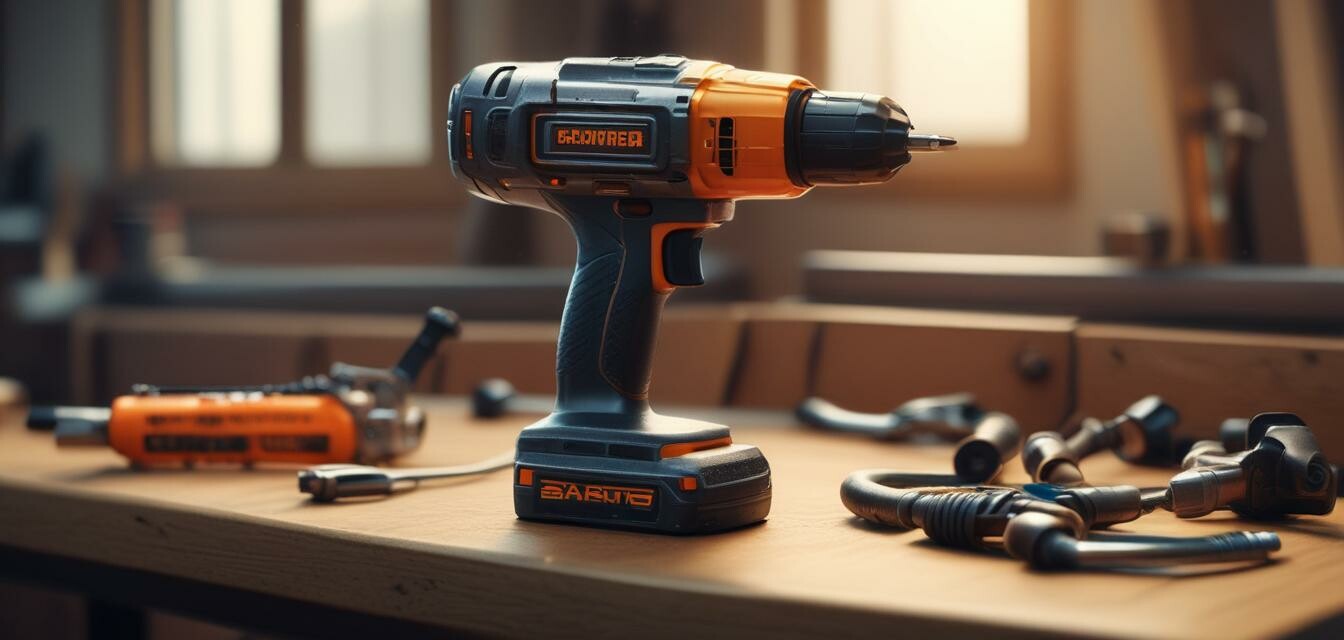
The Future of Corded vs. Cordless Power Tools
Key Takeaways
- The debate between corded and cordless power tools continues, with both having distinct advantages.
- Battery technology is rapidly improving, making cordless tools more viable for heavy-duty tasks.
- Corded tools generally offer unlimited power and higher performance for continuous use.
- Innovation trends focus on hybrid tools that combine the benefits of both styles.
The world of power tools is continually evolving, with passionate debates surrounding corded versus cordless tools. As technology marches forward, understanding the dynamics of these tools helps contractors and DIY enthusiasts make informed choices. In this article, we will explore the ongoing debate, analyze current trends, and forecast what the future holds for both corded and cordless power tools.
The essentials of corded power tools
Corded power tools have long been a staple in the industry, appreciated for their reliability and constant power supply. These tools utilize a direct connection to an electrical outlet, delivering superior performance and longevity during rigorous tasks.
Advantages of corded tools
- Consistent power: As long as there is an outlet, corded tools provide uninterrupted power, making them ideal for heavy-duty projects.
- Higher torque: Corded tools often deliver more torque compared to their cordless counterparts, essential for demanding tasks.
- No battery cost: Users save on costs associated with battery replacement.
Disadvantages of corded tools
- Mobility limitations: Users are tethered to an outlet, restricting their work area.
- Cord issues: Worn or damaged cords can lead to safety hazards and performance drops.
The rise of cordless power tools
In recent years, cordless power tools have gained immense popularity, thanks to the advancements in battery technology. These tools allow freedom of movement, empowering users to tackle projects with unparalleled convenience.
Advantages of cordless tools
- Portability: Cordless tools can be used anywhere without worrying about finding an outlet.
- Technological advancements: Innovations such as brushless motors offer improved efficiency and extended run times.
- Ease of use: Many cordless tools feature ergonomic designs, making them comfortable to handle.
Disadvantages of cordless tools
- Battery life: Continuous heavy use can drain the battery quickly, causing downtime.
- Weight: Batteries can add weight, making certain tools less manageable.
Comparative analysis
| Feature | Corded Tools | Cordless Tools |
|---|---|---|
| Power Supply | Direct electrical connection | Battery-powered |
| Mobility | Limited | Unlimited |
| Torque | Typically higher | Generally lower |
| Maintenance | Less frequent | Battery replacement needed over time |
Looking to the future
The future of power tools seems poised for exciting changes. Several trends are emerging that will potentially reshape the way we use both corded and cordless tools:
Hybrid tools
The industry is witnessing an increase in hybrid tools that blend the advantages of both corded and cordless options. These tools can be plugged in for continuous power or run on battery when needed, thus offering flexibility to users.
Improved battery technology
Advancements in battery technology, such as lithium-ion batteries, are making cordless tools more efficient and longer-lasting, broadening their usability, even for professional-grade tasks.
Smart tools
Smart technology is making its way into power tools, with features like connectivity and data tracking. This technology can provide users with insights into tool performance, usage, and maintenance needs. Tools that integrate smart features can streamline workflows for contractors and DIY enthusiasts alike.
Conclusion
The ongoing discourse between corded and cordless power tools continues to evolve as new technologies reshape the landscape. While corded tools have clear advantages in performance and reliability, cordless options are catching up rapidly with innovations that improve battery life and efficiency. Each type has its place in the toolbox, and understanding these nuances can help you make better choices based on specific project needs.
Pros
- Both corded and cordless tools have distinct advantages for different tasks.
- Improvements in technology are making cordless tools increasingly viable for heavy-duty jobs.
- Hybrid models are emerging, providing the best of both worlds.
Cons
- Corded tools can restrict mobility, while cordless tools may struggle with power for prolonged use.
- Battery life remains a concern for cordless users.
Further reading
If you're interested in learning more about specific types of power tools, check out our detailed guides:
- Angle grinders for precision work
- Essential cordless drills for contractors
- Impact drivers: power at your fingertips
- The versatility of multi-tools
- Portable saws: cutting the competition
- Sanders for that perfect finish
By staying informed about advancements in power tool technology, you'll be better equipped to meet the demands of your projects. Follow our News and Trends blog for the latest updates in the portable power tools industry!
